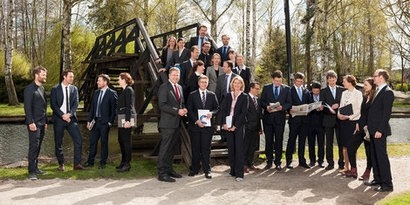
The study concludes that the full cost of electricity at top sites in Germany could fall to between 3 and 4.5 cents per kilowatt-hour. This would represent a considerable decline from the 5.25 to 5.78 cents per kilowatt-hour achieved recently at the first German auction for onshore wind. At top sites globally – for example, in Morocco, Peru, and Mexico – electricity production costs have already fallen to as low as 2.7 to 3.4 cents per kilowatt-hour. Wind power is now one of the world’s cheapest forms of energy.
This cost decline has been propelled by further growth in rotor surface area and turbine capacity. The higher cost of larger turbines is greatly exceeded by the additional revenues they produce. While land leasing and maintenance costs are much higher in Germany than the international average, costs reductions in these two areas are possible as well.
“The technical potential of wind power has yet to be fully tapped” said Matthias Deutsch, co-author of the new study, entitled “Future Cost of Onshore Wind”. “The considerable cost reductions that have been achieved with competitive bidding for solar energy and offshore wind are also possible for onshore wind projects.”
Agora Energiewende is a think-tank and policy laboratory that develops scientifically based and politically feasible approaches for ensuring the success of the German Energiewende (energy transition). It promotes a dialogue with energy policy stakeholders, participants from public policy, civil society, business and academia and seeks to develop a common understanding of the Energiewende, its challenges and courses of action. It seeks to accomplish this with scientific expertise, oriented towards goals and solutions, and devoid of any ideological agenda.
Image: Agora Energiewende
For additional information:

